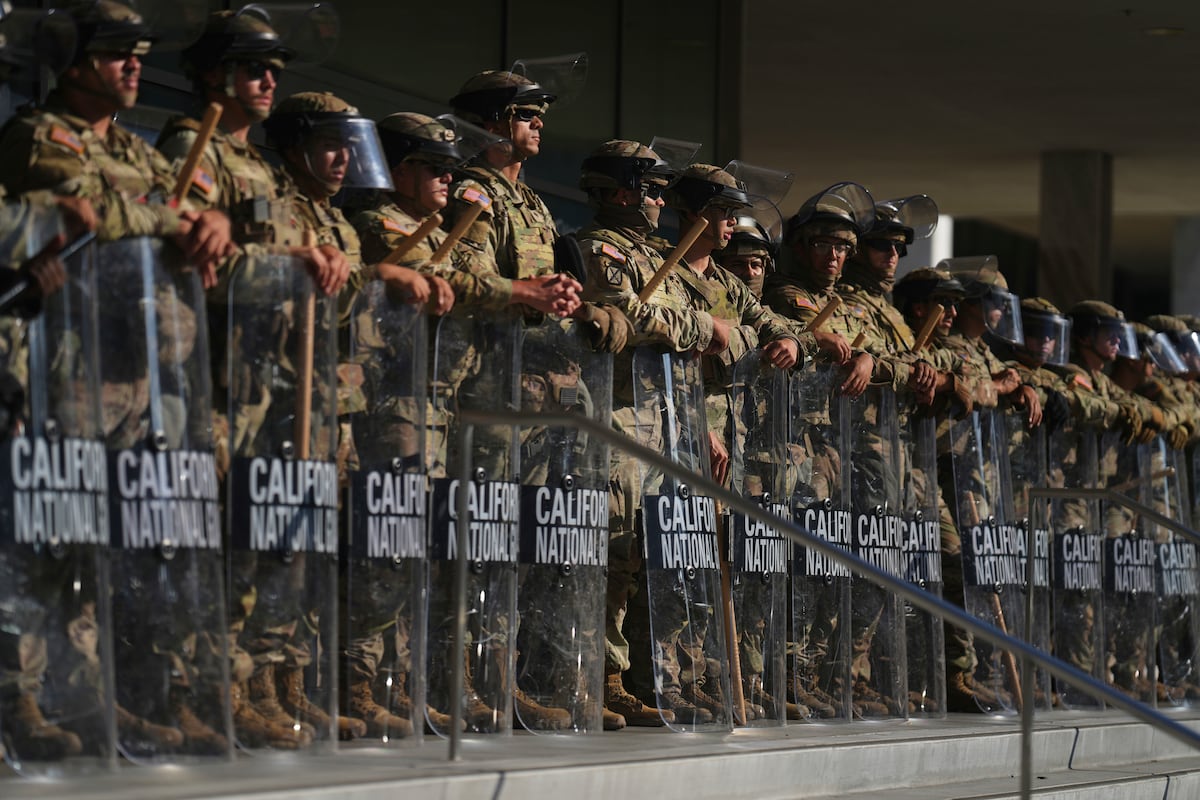Navy spouse sues base officials over free speech after Facebook ban

A Navy spouse is suing officials at Naval Submarine Base Kings Bay, Georgia, alleging they censored him by banning him from their official government Facebook page.
Sergio Rodriguez, an Army veteran and military family advocate who was named 2022 Navy Spouse of the Year by Armed Forces Insurance, alleges his First Amendment rights were violated when officials banned him from the Naval Submarine Base Kings Bay’s Facebook page and deleted all his comments in August 2024.
The lawsuit, filed Thursday in federal court in Norfolk, Virginia, names Capt. Christopher Bohner, commanding officer of the base, and Scott Bassett, a public affairs officer, as defendants.
“This case is about ensuring the government can’t silence voices it doesn’t like, especially those speaking up on behalf of others,” said Mike Petrino, senior litigation counsel for the Center for Individual Rights, a nonprofit public interest law firm representing Rodriguez. “The Navy may not like what Sergio had to say, but the First Amendment prohibits them from shutting him out of a public forum for saying it.”
Rodriguez, who lives in Chesapeake, Virginia, is an advocate for military families who encounter problems with military housing and other issues, and regularly follows official social media pages of various military bases worldwide, according to the lawsuit. He uses those social media pages to advise, mentor and assist families who live on base.
In August 2024, Rodriguez saw on the submarine base’s Facebook page that an electrical power outage had left many military families living on base without power for more than 12 hours, according to the lawsuit. Officials posted that Public Works was on the scene working to restore electricity as quickly as possible, according to a screenshot of the posting included in the lawsuit.
Rodriguez posted questions about whether the base had a plan to temporarily relocate residents if the power outage continued, and whether officials would provide information on how residents could be reimbursed for their spoiled perishables. Officials responded with a post that those with a claim should start with the Navy Legal Service Office.
Shortly after that, Bassett, at the direction of Bohner, banned Rodriguez from the Facebook page and deleted all of his previous comments, the lawsuit alleges. He had been posting to the base’s Facebook page for the previous four years without incident.
Rodriguez received a call from Bohner’s wife indicating he had been banned from the Facebook page, the lawsuit claims. A few days later, Rodriguez emailed Bassett requesting reinstatement to the Facebook page, but received no response.
“The Navy’s actions didn’t just block me — they tried to block the truth,” Rodriguez said in an announcement of the lawsuit. “I was giving families relevant guidance I wish I had when I first started navigating the system. Silencing that helps no one.”
Officials have not given Rodriguez any reason for banning him, according to Rodriguez’s attorneys.
The Navy doesn’t comment on pending litigation, said Destiny Sibert, a spokeswoman for Commander, Navy Installations Command headquarters.
She referred to the Navy’s social media policy, updated in October 2024, which states: “The Navy may not block individual social media accounts from official Navy social media sites. However, the Navy may delete comments that constitute a violation of law, regulation, or the Navy’s terms of service.”
The policy further states that public officials who use social media accounts for official business cannot exclude people from open online discussions simply because they express opposing views, as that would violate the First Amendment. It also notes that the First Amendment doesn’t protect all types of speech, including “obscenity, defamation, fraud, incitement and speech integral to criminal conduct.”
The Navy’s previous social media policy was more ambiguous and didn’t address First Amendment rights, according to a Military Times comparison of the two policies, but listed specific violations that would result in someone being blocked, such as graphic, obscene, explicit or racist comments or submissions, or comments that are abusive, hateful or intended to defame.
According to the lawsuit, Rodriguez received a commendation from then-President Joe Biden and first lady Jill Biden for his advocacy for military families. He served in the Army from 2000 to 2006, when he retired due to disability. As of 2010, when his wife joined the Navy, he became a Navy spouse.
RELATED
This is the second lawsuit the Center for Individual Rights has filed this year regarding allegations of First Amendment rights violations in the military community. In March, the organization filed a lawsuit on behalf of Timothy Stanhope, a retired National Guard member with 23 years of service in the North Carolina National Guard. He named the leadership of the North Carolina National Guard as defendants, alleging he was banned from their official Facebook page after posting critical comments about the Guard leadership, mismanagement, living conditions, food and water quality. The lawsuit alleges he was forced to retire, and after he retired, the leaders banned him from the official Facebook page.
Attorneys for Rodriguez and Stanhope contend that as more government officials and agencies use social media to communicate with the public, the cases could serve as critical reminders to government officials about the constitutional limits of digital censorship.
Because he was banned from the Facebook page, Rodriguez has “suffered irreparable and ongoing harm” because he’s prevented from receiving information from the page, and is prevented from offering advice and assistance to others on the page, the lawsuit alleges.
The lawsuit asks for an injunction to prohibit the officials from blocking Rodriguez from the Facebook page, or deleting his comments on the basis of his viewpoint. It also asks the court to award him costs, reasonable attorneys’ fees and other expenses and any additional relief.
Karen has covered military families, quality of life and consumer issues for Military Times for more than 30 years, and is co-author of a chapter on media coverage of military families in the book “A Battle Plan for Supporting Military Families.” She previously worked for newspapers in Guam, Norfolk, Jacksonville, Fla., and Athens, Ga.







